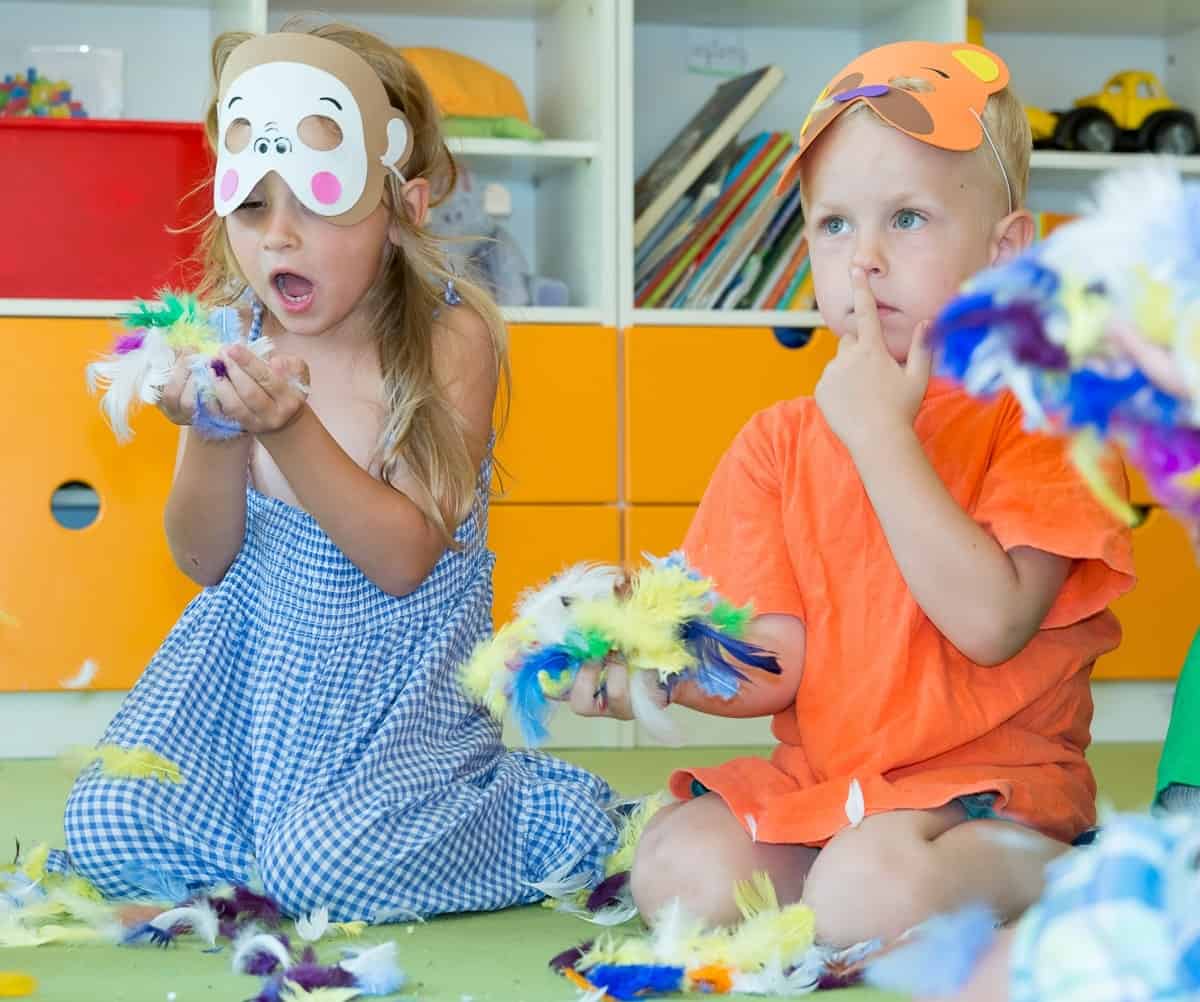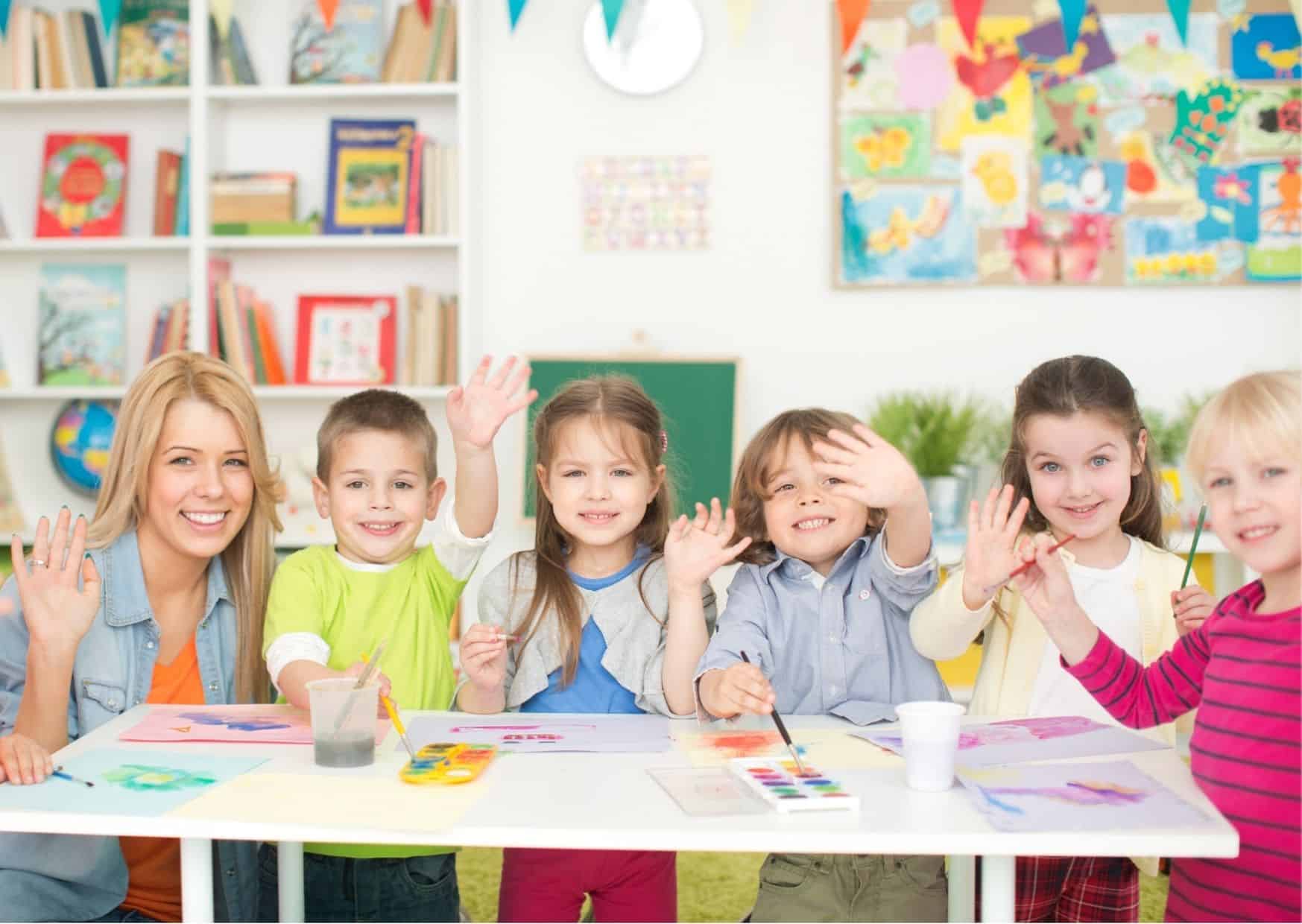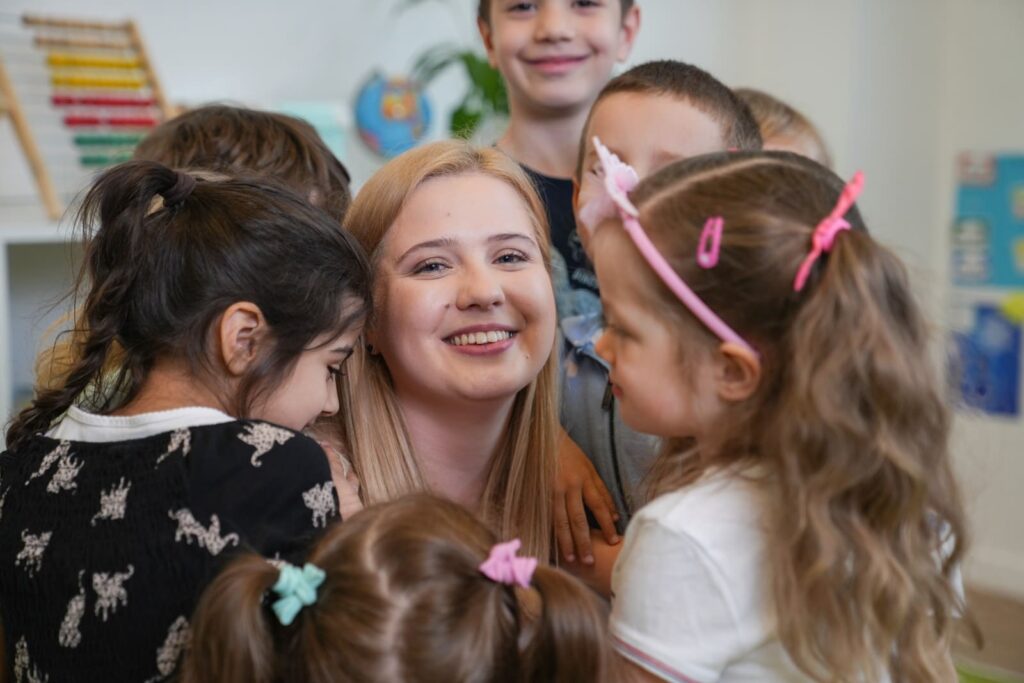"Nanny or kindergarten?" - this question torments many parents who want to provide their children with optimal conditions for comprehensive development. The decision is not easy and observation of the child often leads to contradictory conclusions.
On the one hand, the toddler runs joyfully to the playground, and when he returns, he talks about his peers, and on the other, he plays alone in the sand, not trying to play together. He willingly "appropriates" other children's toys, protecting his own like a treasure. He wants to do everything himself, although the first unsuccessful attempts end in tears and cause discouragement. He can put on selected garments on his own ... as long as we give him enough time. It signals the need to go to the toilet… sometimes when the underwear is about to be changed. He has his favorite dishes, he doesn't eat vegetables ... most often he needs additional feeding. She stays with her grandmother and aunt without protest, but is ashamed to hide behind her mother when she talks to her neighbor or the postman.
Nanny or kindergarten? Usually, "masses of undisputed experts": grandmothers, neighbors, friends of friends from the playground, want to help in making the decision - willingly telling about their usually not very positive experiences with nannies and kindergartens. Time passes, the increasingly frustrated parents go from the extreme to the extreme, the tension is reaching its zenith. Before making a decision it is worth considering the advantages and disadvantages of both solutions.
Nanny or kindergarten? | Nanny - advantages and disadvantages
Hiring a babysitter has several important advantages:
Individual childcare, possibility to devote full attention to the toddler's needs;
Upbringing in accordance with the recommendations and expectations of parents, consistency of rules;
Possibility of entrusting additional tasks, e.g. cooking meals for the child during his after-dinner rest;
Flexible working hours tailored to the needs of parents.
The problem is:
Finding a qualified nanny for whom childcare is not a way to "survive", but results from predisposition or education (eg students of pedagogy);
Not every babysitter knows how to stimulate the child's development, how to arouse curiosity about the world, what games are appropriate to the age, predispositions and interests of the child;
It happens that nannies have difficulty in adequately responding to the toddler's behavior, overly indulging him or overly disciplining him;
No babysitter, even the best one, can replace a child's contact with peers - necessary for proper social and emotional development.
Nanny or kindergarten? | Kindergarten - pros and cons
The list of advantages is long:
Care for children is performed by qualified pedagogical staff;
Kindergartens operate on the basis of educational and educational programs approved by the Ministry of National Education, the main goal of which is to meet the child's needs and support its harmonious development in all spheres: cognitive, emotional, social, and creative;
The tasks in kindergarten are tailored to the individual abilities of the child, so that he can achieve success on his own measure.
The child has the opportunity to develop interests by participating in additional activities: rhythmics, art, language, theater, dance, sports workshops, etc .;
Being in a peer group, he learns to accept social norms and rules, to understand the needs and expectations of others and to express his own in an acceptable way. It overcomes shyness in dealing with peers. Tries to solve problems;
In kindergarten, the child improves self-service skills (using the toilet, washing hands and teeth, dressing, cleaning up after play). Teachers support and motivate to make independent attempts, but they do not do it. They reward effort, not effect;
In most institutions - especially non-public ones - parents can consult specialists: a psychologist, speech therapist, and pediatrician.
The constant schedule of the preschool day is important for the toddler's sense of security;
Most kindergartens conduct adaptation classes (in non-public institutions) or open days (in public institutions).
Minuses:
In a public place, the child is more likely to be infected;
Too many groups, especially in public kindergartens;
There are not enough public kindergartens, and not every parent can afford to burden the budget with tuition fees for private kindergartens.
The choice seems just as difficult? Finally, the most important thing - no one knows their children as well as their parents, so trust your own intuition. Guided by the best interests of the child, you will surely make the right choice.
Author: Joanna Goc-Matyskiel, pedagogue, methodologist, PD educator for Parents.




